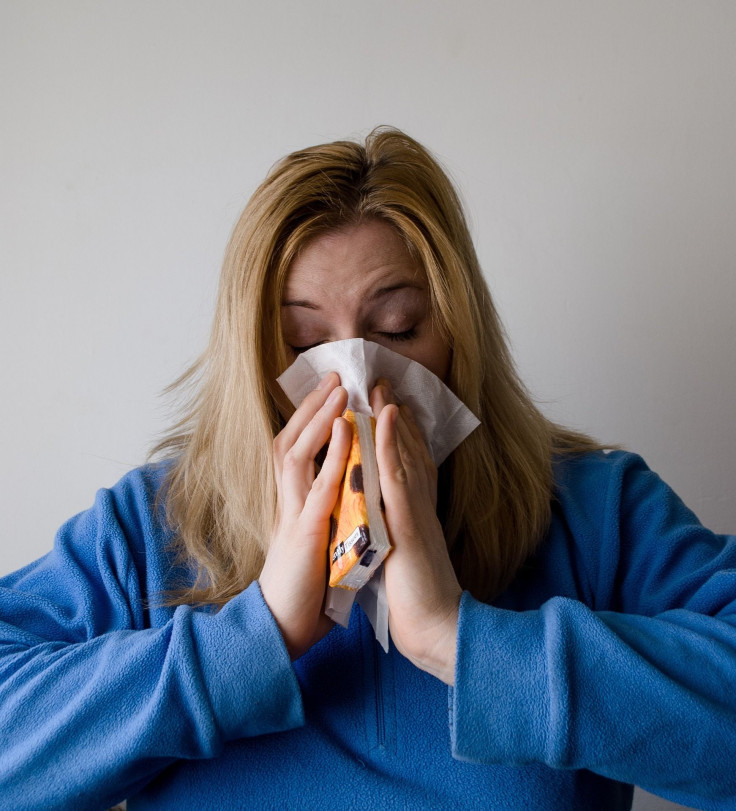How Sick Symptoms Are Evolution’s Way Of Telling You To Stay Home And Rest

New research suggests that when you begin to feel the makings of a cold or fever, “pushing through it” is probably not the best thing to do. The new study, conducted by researchers at the Weizmann Institute of Science in Israel, posits that typical “sick symptoms” — like runny noses, fatigue, or headaches — is evolution’s way of telling you to stay home and rest.
While this advice may seem obvious, people often don’t heed it — typically to their own detriment. It’s especially poignant during flu seasons, when many of us deny our body’s symptoms to get that last hour of work in, or to make it to that party.
The researchers describe the common phenomenon of sickness behavior as something that all animals experience; even bees behave differently when they come down with an illness. We know how bacterial and viral infections cause sore throats and other symptoms, but researchers still aren’t entirely sure the reason why infections cause these symptoms. The study aimed to expand into that further.
In their report, the researchers discuss the “selfish gene” as being the cause for the tendency for organisms to isolate themselves when they are experiencing sick symptoms. While this may not offer the sick individual any direct benefits in an evolutionary sense, it does prevent others in the social group from getting infected.
“[Sickness behavior] affects species spanning from arthropods to vertebrates, is triggered nonspecifically by viruses, bacteria, and parasites, and is orchestrated by a complex network of cytokines and neuroendocrine pathways; clearly, it has been naturally selected,” the authors write in the abstract. Sickness behaviors will typically put an individual at a disadvantage, as not eating will make them weaker and more vulnerable to predators; and reduced sexual desire decreases their chances of reproduction and even survival.
The benefit of sickness symptoms, then, must extend beyond the individual and prevent others from getting sick, a social protection of sorts. Losing your appetite when you have mono, for example, prevents you from eating or drinking from shared food sources and infecting others. Fatigue, meanwhile, prevents you from moving around too much and allowing your germs to travel. Loss of interest in social or sexual contact during sickness may also prevent others from getting sick.
“We know that isolation is the most efficient way to stop a transmissible disease from spreading,” Professor Guy Shakhar of the Weizmann Institute’s Immunology Department, an author of the study, said in the press release. “The problem is that today, for example, with flu, many do not realize how deadly it can be. So they go against their natural instincts, take a pill to reduce pain and fever and go to work, where the chance of infecting others is much higher.”
The authors conclude that quite simply, if you’re experiencing common cold or flu symptoms, the best thing to do for yourself and others is to just stay home and rest. Sometimes, it can take weeks or even months to recover from a bad illness like mono, and you must allow your body to do that.
“We are so used to malaise being the essence of infection that we often forget to ask why it evolved,” the authors write in the study. “This is because behavioral symptoms are routinely relieved using anti-inflammatory drugs… [S]uch use could prove socially irresponsible. By enabling infected people to travel widely and socialize, it interferes with a natural mechanism that prevents pathogen spread.”
Source: Shakhar K, Shakhar G. Why Do We Feel Sick When Infected—Can Altruism Play a Role? PLoS Biology, 2016.
Published by Medicaldaily.com



























